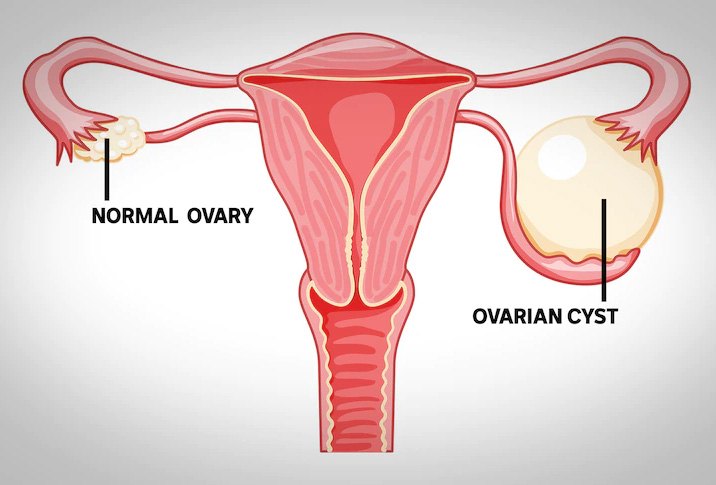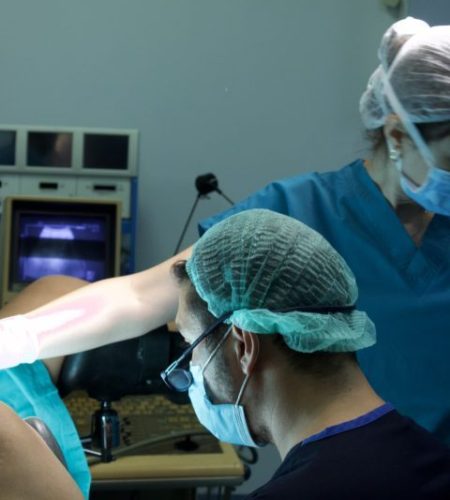Does an Ovarian Cyst Affect Female Fertility? Treatments and Solutions
Ovarian cysts are fluid-filled sacs that develop on the ovaries and are quite common among women of reproductive age. While many cysts are benign and may resolve on their own, their presence can raise concerns about fertility. In this blog post, we’ll explore how ovarian cysts can impact female fertility, the treatments available, and whether advanced fertility procedures like IVF, embryo transfer, or oocyte pick-up could be affected. We’ll also discuss the best fertility treatment options for women dealing with ovarian cysts.
How Do Ovarian Cysts Affect Fertility?
Ovarian cysts can affect fertility in several ways, though the impact largely depends on the type and size of the cyst:
- Functional Cysts: These are the most common type and include follicular cysts and corpus luteum cysts. Functional cysts are usually harmless and often resolve without treatment. In most cases, they do not affect fertility.
- Endometriomas: These cysts are associated with endometriosis, a condition where tissue similar to the lining of the uterus grows outside it. Endometriomas can cause pain and may lead to scarring or adhesions, which can affect fertility by obstructing the fallopian tubes or disrupting ovarian function.
- Polycystic Ovary Syndrome (PCOS): PCOS is characterized by multiple small cysts on the ovaries and is a common cause of infertility. PCOS can lead to irregular ovulation or anovulation (lack of ovulation), making it challenging to conceive.
- Dermoid Cysts and Cystadenomas: These are less common but can become large enough to impact ovarian function or cause pain. Their impact on fertility depends on their size and whether they cause any damage to the ovary.
Treatments for Ovarian Cysts
Treatment for ovarian cysts depends on their type, size, and symptoms. Here are some common approaches:
- Watchful Waiting: For many functional cysts, no treatment is necessary. Regular monitoring through ultrasounds may be recommended to ensure the cyst resolves on its own.
- Medications: Hormonal treatments, such as birth control pills, can help regulate the menstrual cycle and prevent the formation of new cysts. They are often used in cases of PCOS to manage symptoms and improve fertility.
- Surgery: If a cyst is particularly large, persistent, or causing significant symptoms, surgical intervention might be necessary. Laparoscopic surgery is commonly used to remove cysts while preserving as much ovarian tissue as possible.
- Treating Underlying Conditions: For conditions like endometriosis or PCOS, addressing the underlying issue can improve fertility. This might involve hormonal therapies, lifestyle changes, or other medical interventions.
Impact of IVF, Embryo Transfer, and Oocyte Pick-Up on Fertility
In Vitro Fertilization (IVF): IVF is a fertility treatment where eggs are retrieved from the ovaries, fertilized in a lab, and then implanted into the uterus. The presence of ovarian cysts can complicate the IVF process, particularly if they are large or if there is underlying endometriosis or PCOS. Cysts can affect ovarian response to stimulation medications, but they can often be managed through careful planning and monitoring.
Embryo Transfer: During IVF, the embryo transfer is the final step where embryos are placed into the uterus. This procedure itself does not impact ovarian function or fertility; however, the overall success of IVF may be influenced by the health of the ovaries and uterus.
Oocyte Pick-Up (Egg Retrieval): This procedure involves collecting eggs from the ovaries for fertilization. If ovarian cysts are present, they can complicate the retrieval process. For instance, large cysts might affect the positioning of the ovaries or make the procedure more challenging. However, with proper management and monitoring, many women with cysts can still undergo successful oocyte pick-up.
Best Fertility Treatment Options
Choosing the best fertility treatment depends on individual circumstances, including the type of cyst, its impact on ovarian function, and any underlying conditions. Here are some options:
- Lifestyle Changes and Medication: For women with PCOS or functional cysts, lifestyle modifications such as weight management, along with medications, can improve fertility.
- Surgical Intervention: If cysts are causing significant issues or are associated with conditions like endometriosis, surgery might be necessary to improve fertility outcomes.
- IVF: For women with more complex issues related to cysts or underlying conditions, IVF may be a viable option. IVF can bypass some of the obstacles caused by ovarian cysts, but it’s essential to work closely with a fertility specialist to optimize treatment plans.
- Addressing Underlying Conditions: Treating conditions like endometriosis or PCOS effectively can significantly enhance fertility. In some cases, a combination of treatments, including hormonal therapy and lifestyle changes, might be recommended.
In conclusion, while ovarian cysts can impact fertility, many women with cysts can still conceive successfully with the right treatment approach. Consulting with a fertility specialist is crucial to determine the most appropriate course of action based on individual circumstances and the specific type of ovarian cyst. With advancements in fertility treatments and careful management, many women with ovarian cysts are able to achieve their dream of becoming parents. For more information about ovarian cysts, please check this article by Cyprus American IVF.
Cyprus Crown IVF Contact: https://en.cypruscrownivf.com/contact
Cyprus American IVF Contact: https://www.cyprusamericanivf.com/contact-us/
Dr. Halil Ibrahim Tekin (Dr. HIT) Youtube: https://www.youtube.com/@dr.halilibrahimtekin1715
Cyprus American IVF Youtube: https://www.youtube.com/@AmerikanTupBebekMerkezi




